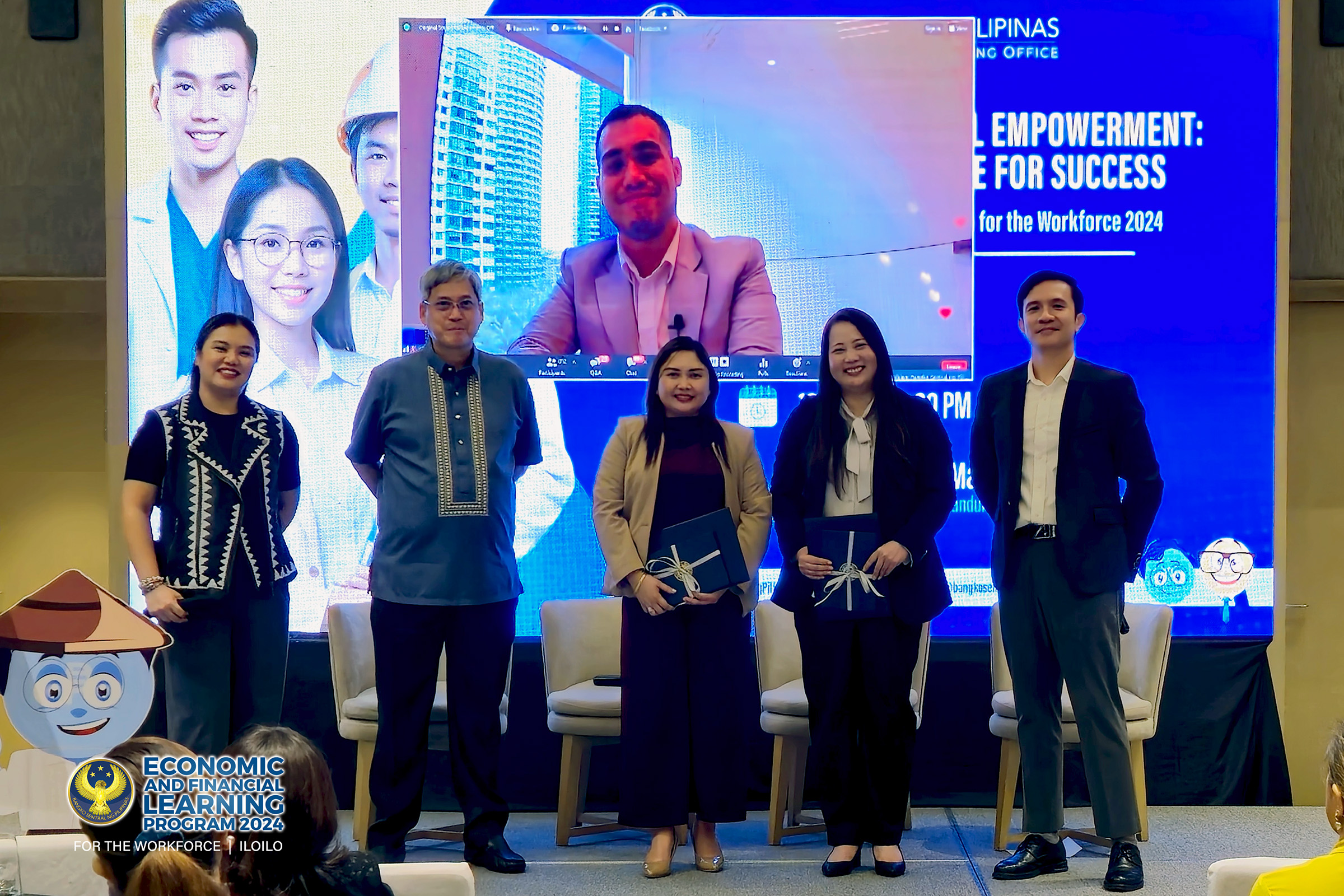The Bangko Sentral ng Pilipinas (BSP) has continued its push for financial literacy (fin lit) by bringing its “Economic and Financial Learning Program (EFLP) Session for the Workforce” to Iloilo City recently.
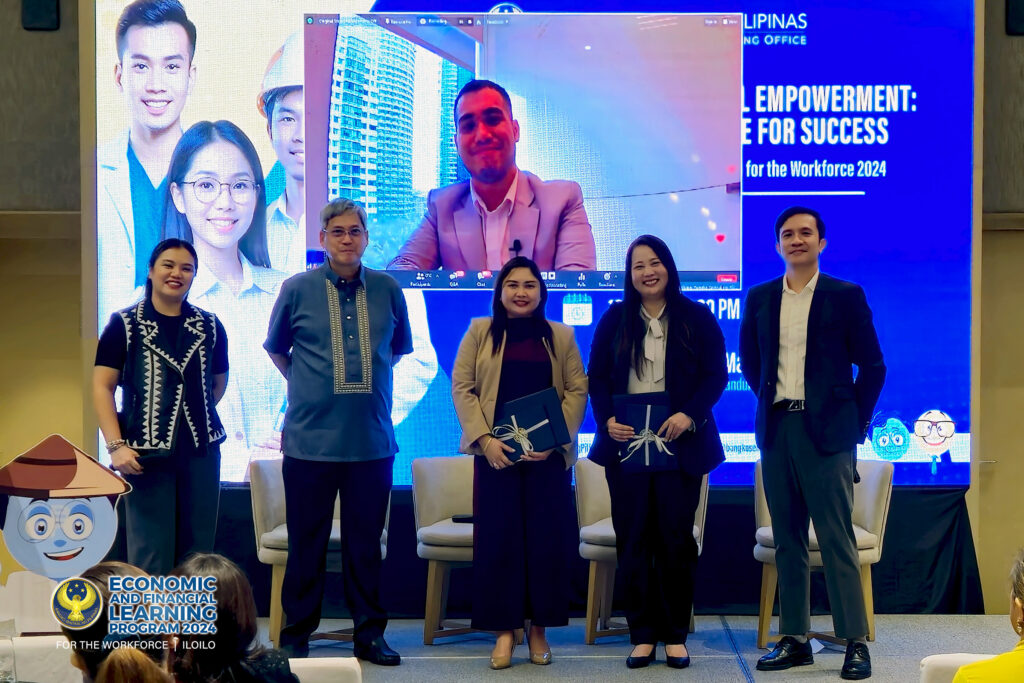
Photo shows (from left) BSP Bank Officer Lizette O. Antonio and Deputy Director Arnel Adrian C. Salva, Bureau of Treasury Region VI Director Gary Angel S. Mana-ay, BPI Wealth Investment Advisor Maryann Julie Chan representing the Trust Officers Association of the Philippines, ATRAM Business Development Officer John Paul Chiong of the Philippine Investment Funds Association, Inc. (on screen), and BSP Currency Assistant Michael Angelo Salvo during the financial learning session in Iloilo City.
The event was attended by over 200 participants in person, including workers from the public and private sectors, micro, small, and medium enterprises (MSMEs), and agri-enterprises.
Additionally, more than 2,700 people joined the session virtually, making it one of BSP’s largest efforts to date in educating the workforce on financial management and economic awareness.
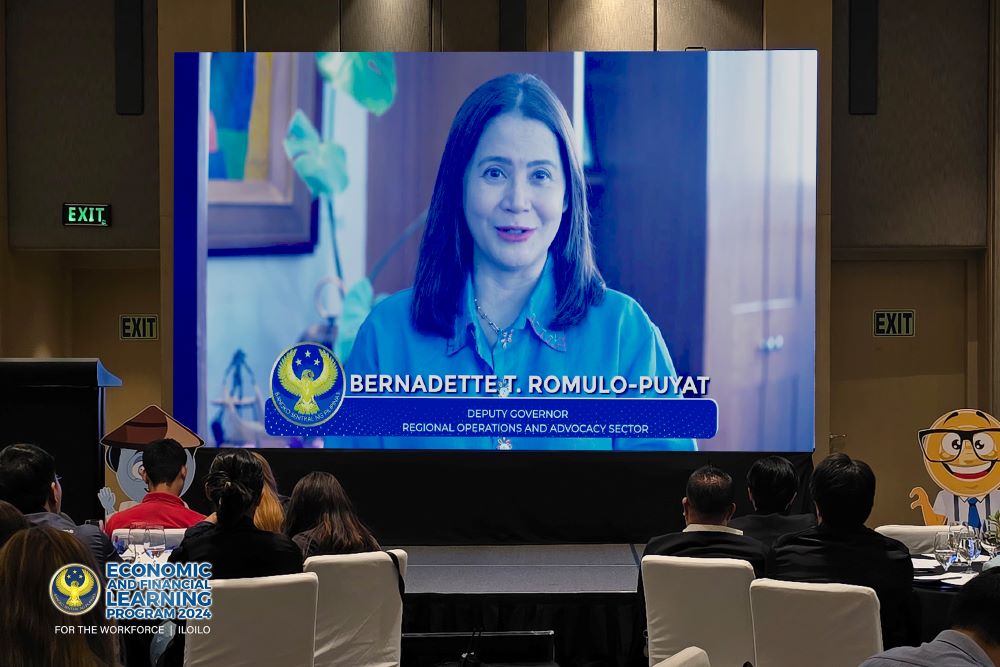
In a recorded message, BSP Deputy Governor Bernadette Romulo Puyat stressed the importance of financial literacy in improving the lives of Filipino workers.
“Financial learning will be helpful in making better financial decisions, like buying a home, starting a business, saving for education, preparing for retirement, or building financial resilience,” she said, highlighting how crucial financial knowledge is in achieving life goals.
The EFLP session in Iloilo offered a wide range of topics designed to help workers make smart financial choices, such as personal finance management, investing, and consumer protection. The program emphasized that financial literacy is a tool to enable Filipino workers to contribute more effectively to both their personal success and the country’s economic strength.
BSP: Addressing the low rate of investment ownership
A significant focus of the session was addressing the low rate of investment ownership among Filipinos.
According to the 2021 BSP Financial Inclusion Survey, only 36% of Filipino adults own investment products. This data underscores the need for more accessible financial education for the workforce, particularly those who may not have had formal training in personal finance.
To bridge this gap, the session offered practical advice on managing personal finances. Attendees learned the basics of budgeting, saving, and debt management.
These fundamentals, according to BSP officials, are essential for Filipinos to start growing their wealth and securing their financial futures. The session also underscored the importance of investment as a means of achieving financial security, not just for individuals but for the broader economic development of the country.
Promoting consumer protection
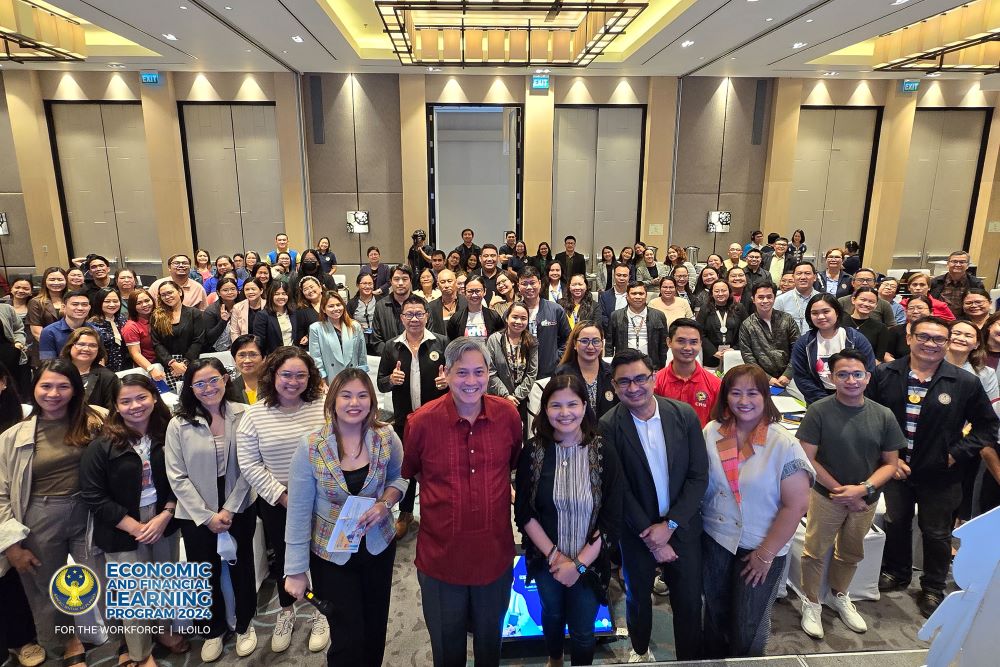
An important part of the EFLP session was a discussion on the Financial Products and Services Consumer Protection Act, which aims to safeguard the rights of financial consumers.
Participants were educated on their rights and responsibilities as financial consumers and the role of the BSP in protecting those rights. As more Filipinos engage with digital financial services, understanding how to navigate these platforms safely and confidently is becoming increasingly critical.
“Financial literacy empowers consumers to protect themselves from fraud, scams, and predatory lending practices. It also helps them understand the full range of financial products available, allowing them to make informed decisions that best suit their needs,” said BSP Deputy Director Arnel Adrian C. Salva, one of the speakers at the event.
Understanding economic indicators
Beyond personal finance, the session also introduced participants to key economic indicators that affect both individuals and businesses. BSP experts explained the significance of indicators like gross domestic product (GDP) and inflation, which are vital for understanding the health of the Philippine economy.
By equipping workers with knowledge about these indicators, the BSP aims to help Filipinos better navigate economic shifts and make informed financial decisions in times of uncertainty.
According to Salva, understanding these concepts will help workers align their financial decisions with broader economic trends. “Knowing how GDP and inflation affect the economy allows individuals to anticipate changes that may impact their purchasing power, business ventures, and overall financial planning,” he added.
Collaborative effort for financial inclusion
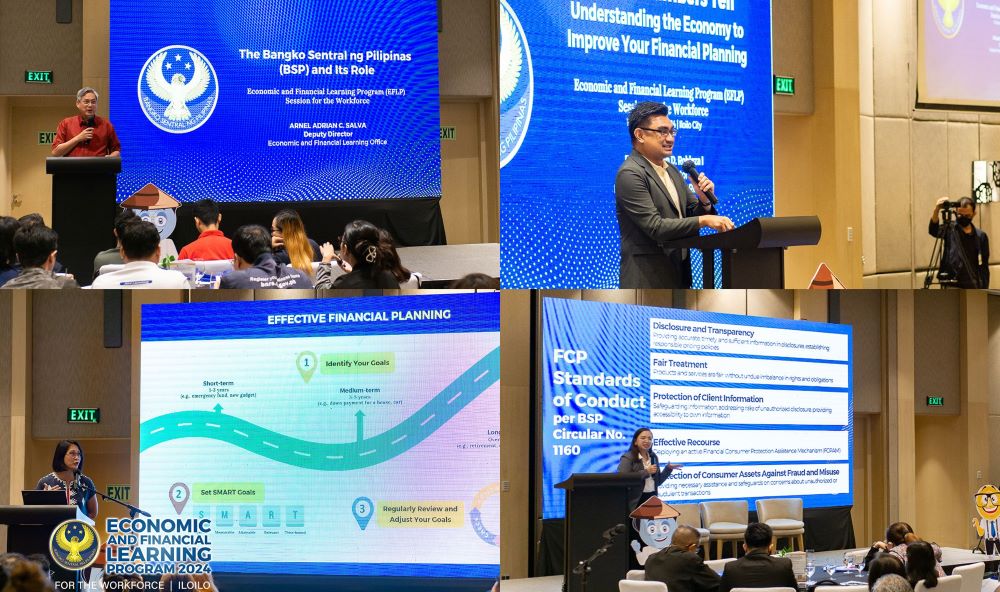
The session featured key partnerships, including with the Bureau of Treasury Region VI, the Trust Officers Association of the Philippines, and the Philippine Investment Funds Association, Inc.
Experts from these institutions shared their insights on various financial topics, providing participants with a holistic view of the financial landscape.
As BSP continues to roll out its financial literacy initiatives across the country, it is clear that these programs are making a positive impact on Filipino workers, particularly in regions outside Metro Manila.
Just recently, the central bank announced that banking institutions could play a pivotal role in advancing financial inclusion across the Philippines as the BSP and its Financial Inclusion Steering Committee (FISC) unveiled a new digital platform designed to bring essential financial services to underserved communities.
By prioritizing financial education, the BSP is not only enhancing individual financial security but also contributing to a stronger, more inclusive Philippine economy.




